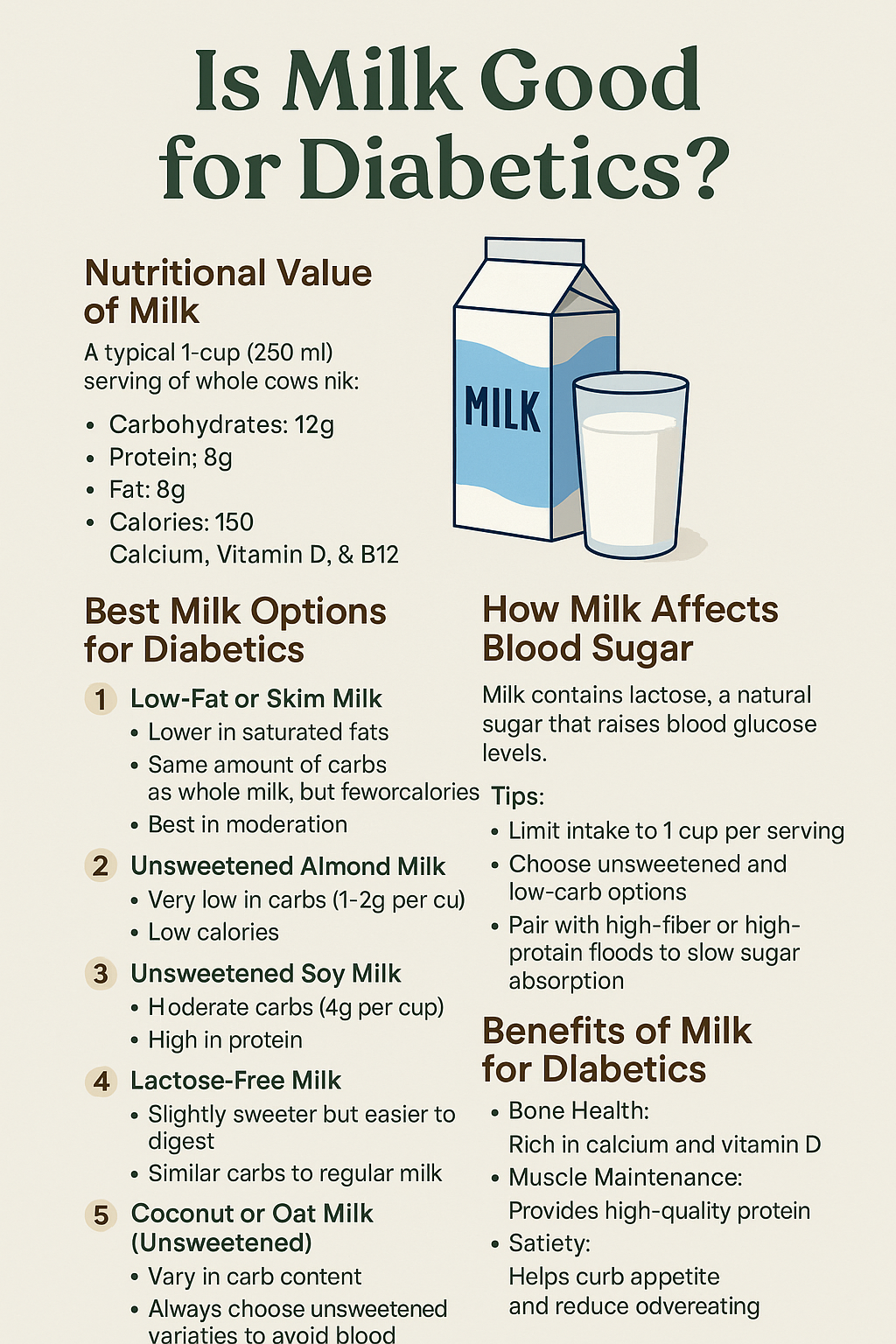Milk is a nutrient-rich drink loaded with calcium, protein, and essential vitamins. But for people living with diabetes, the natural sugar (lactose) in milk can raise questions: Is milk good for diabetics? Which type of milk is best?
This guide breaks down the facts to help you make informed choices.
Nutritional Value of Milk
A typical 1-cup (250 ml) serving of whole cow’s milk contains:
- Carbohydrates: 12g (mostly from lactose)
- Protein: 8g
- Fat: 8g
- Calories: 150
- Calcium, Vitamin D, and B12
While milk offers important nutrients, the carbohydrate content can affect blood sugar levels, especially in Type 2 diabetes.
Best Milk Options for Diabetics
If you have diabetes, choosing the right type of milk is crucial. Here are some diabetic-friendly milk options:
🥛 1. Low-Fat or Skim Milk
- Lower in saturated fats
- Same amount of carbs as whole milk, but fewer calories
- Best in moderation
🥥 2. Unsweetened Almond Milk
- Very low in carbs (1-2g per cup)
- Low calories
- Ideal for blood sugar control
🫘 3. Unsweetened Soy Milk
- Moderate carbs (4g per cup)
- High in protein
- Suitable for lactose intolerance
🥛 4. Lactose-Free Milk
- Slightly sweeter but easier to digest
- Similar carbs to regular milk
- Choose low-fat options
🥥 5. Coconut or Oat Milk (Unsweetened)
- Vary in carb content
- Always choose unsweetened varieties to avoid blood sugar spikes
How Milk Affects Blood Sugar
Milk contains lactose, a natural sugar that raises blood glucose levels. Drinking large quantities or sweetened milk varieties can lead to unwanted blood sugar spikes. For this reason, portion control is key.
Tips:
- Limit intake to 1 cup per serving
- Choose unsweetened and low-carb options
- Pair with high-fiber or high-protein foods to slow sugar absorption
Benefits of Milk for Diabetics
✅ Bone Health: Rich in calcium and vitamin D
✅ Muscle Maintenance: Provides high-quality protein
✅ Satiety: Helps curb appetite and reduce overeating
Who Should Be Cautious?
Diabetics with:
- Lactose intolerance
- High cholesterol or heart disease
- Uncontrolled blood sugar levels
…should consult a doctor or dietitian before adding milk to their daily diet.
Conclusion
Milk can be a part of a diabetic-friendly diet if chosen wisely. Stick to low-fat, unsweetened, or plant-based alternatives, and always monitor your blood glucose response. As with all foods, moderation and balance are key.



